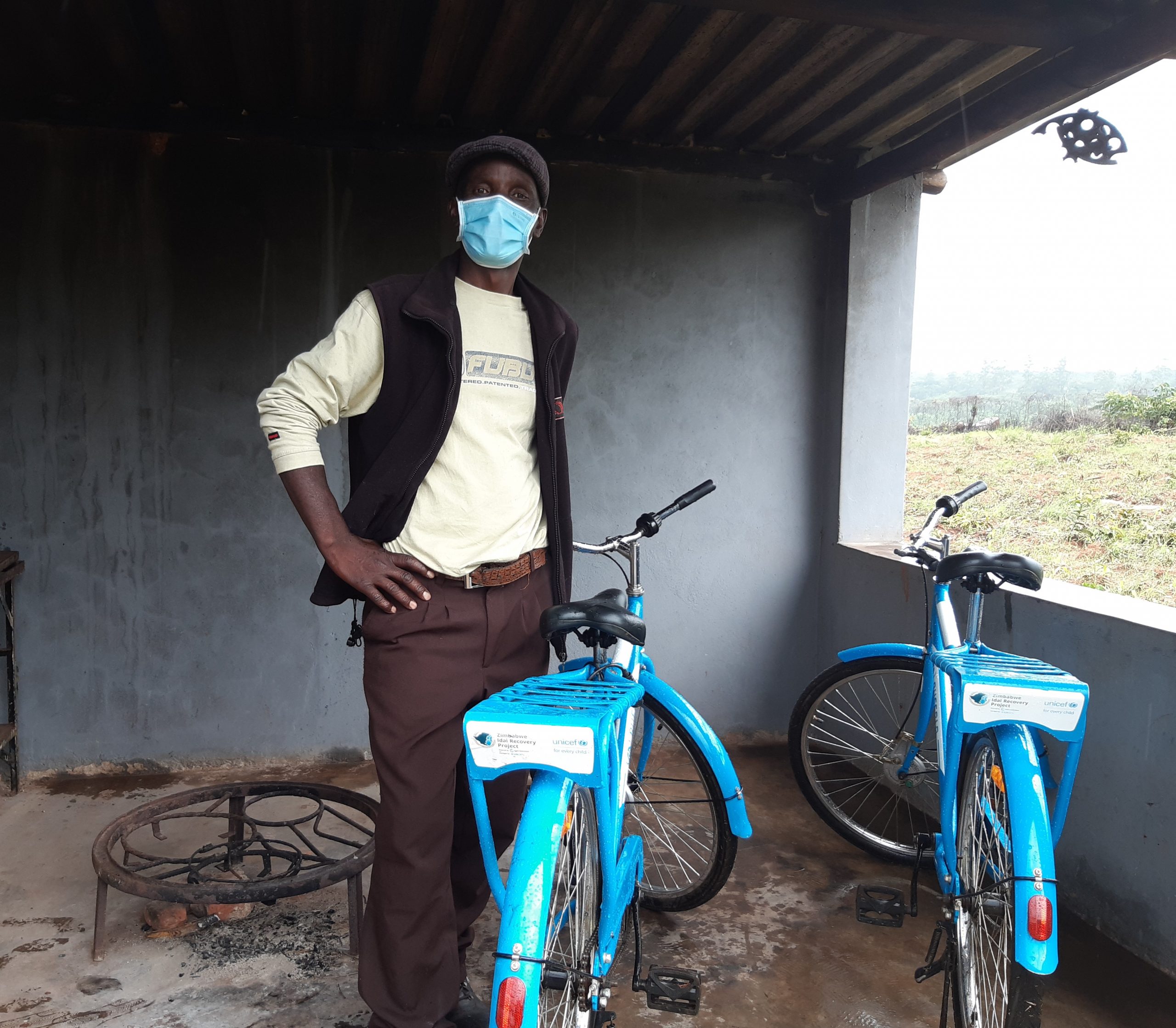Village Health Workers challenging gender stereotypes
Village health workers are dedicated to distributing basic health services and information, serving thousands of people in hard-to-reach areas across Zimbabwe. Traditionally a female role, their dedication is influencing other community members to contribute in spreading awareness and information on health issues, including COVID-19. Many of them have inadvertently recruited their family members, including husbands, into their work for a healthier community.
Prisca Gwenzi is one of them and with her husband, Caiphas Mtisi, has formed a wife and husband team serving the community with health services and information. “She can go for days and I don’t mind being alone, I know she will be getting valuable training that the community and I will benefit from. I accepted my role as her helper the day she was chosen to do this job,” Mitsi said.
Increasingly in target communities, village health workers aren’t all women. Temson Murondi, 56, a village health worker in Chipinge is proud to be serving his community. “Being called ‘Ambuya Utano’ comes with the job. Some men shout ‘granny’ and laugh at me when I pass by, saying I am doing a woman’s job,” he says. “I respond by chiding them to come and register their pregnancies with me, the granny, even though they are men. That is my way of teaching them to respect the burdens that their wives carry. They listen. The training I have received from UNICEF under the ZIRP has built my confidence on the job and even to respond to such comments.”
As providers of critical first-line help to villagers across the country, village health workers are integral to ZIRP’s health component which focuses on revitalising basic health services and strengthening primary care services in cyclone-affected areas. Community engagement and participation in the health system is improved as a result.

